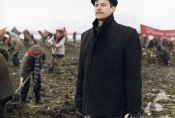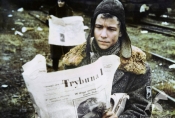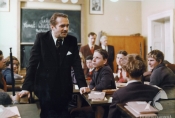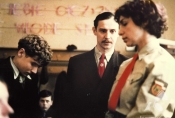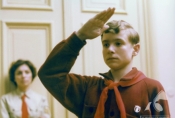SHIVERS [1981]
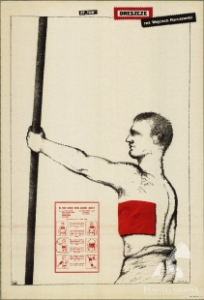
year:
- 1981
release date:
- 23 XI 1981
runtime:
- 102 min
directed by:
- Wojciech Marczewski
written by:
- Wojciech Marczewski
director of photography:
- Jerzy Zieliński
cast:
- Tomasz Hudziec [Tomek Żukowski], Teresa Marczewska [head girl-guide], Marek Kondrat [class tutor], Zdzisław Wardejn [an inspector], Władysław Kowalski [Tomek’s father], Teresa Sawicka [Tomek’s mother], Jerzy Bińczycki [Cebula, a Polish teacher], Bogdan Koca [a scounting counsellor], Zygmunt Bielawski [director of the training center], Bogusław Linda [a Secret Service officer in plain clothes searching the Żukowskis’ apartment], Mieczysław Janowski [a camp counsellor], Wiktor Grotowicz [school director], Marian Opania [Zbyszek, boyfriend of the head girl-guide]
edited by:
- Irena Choryńska
music by:
- Andrzej Trzaskowski
production design:
- Andrzej Kowalczyk
produced by:
- Zespół Filmowy „Tor”
executive producer:
- Zbigniew Tołłoczko
awards:
-
- Polish Feature Film Festival Gdańsk 1981: Grand Prix of the Jury, award for the best female actor in a leading role for Teresa Marczewska, award for best editing for Irena Choryńska
- IFF Berlin (Germany) 1982: Silver Bear, FIPRESCI Award, OCIC Award, International Federation of Film Societies Award
- Don Quixote 1983
About the film
It is the second (after Zmory) film by Marczewski to explore the problems of adolescence under special circumstances. Shivers suggestively depicts the essence of ideas about youth living in the atmosphere of the Stalinist era. The film focuses on the moment of the collapse of the ideals of the Polish Youth Union generation, raising the question of the fate of those minds that had been warped by demagoguery.
It is 1955. Thirteen-year-old Tomek Żukowski, having recently witnessed the brutal arrest of his father by the Secret Service, is admitted to a scout training camp. He develops feelings for the head girl-guide, a fanatical supporter of communist propaganda, which triggers his psychological metamorphosis.
As a result, Tomek, whose name has only recently been displayed on the “black board” as “the resistant one”, forgets the principles he had learnt at home and the ideals instilled in him by his father. The camp participants listen to the Radio Free Europe in secret, where they hear about the strikes in Poznań. Political prisoners are released − Tomek’s father among them. October 1956 draws near. The camp and its political and psychological indoctrination are quickly disbanded.
Jan Słodowski, Leksykon polskich filmów fabularnych, Warszawa 1996
